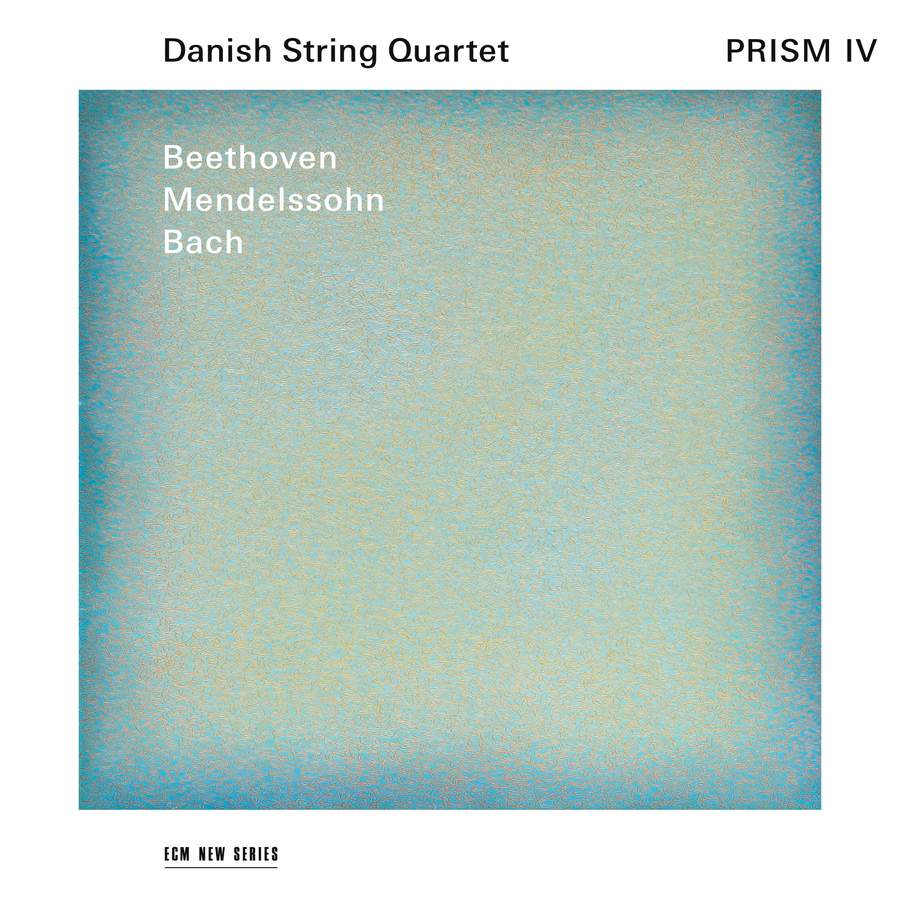Prism IV: Beethoven, Mendelssohn, Bach
View record and artist detailsRecord and Artist Details
Genre:
Chamber
Label: ECM New Series
Magazine Review Date: 09/2022
Media Format: CD or Download
Media Runtime: 80
Mastering:
DDD
Catalogue Number: 485 7305

Tracks:
| Composition | Artist Credit |
|---|---|
| (Das) Wohltemperierte Klavier, '(The) Well-Tempered Clavier, Movement: G minor, BWV861 |
Johann Sebastian Bach, Composer
Danish String Quartet |
| String Quartet No. 15 |
Ludwig van Beethoven, Composer
Danish String Quartet |
| String Quartet No. 2 |
Felix Mendelssohn, Composer
Danish String Quartet |
Author: Peter Quantrill
Phrased in two (like Schiff) instead of four (Gould), the G minor Fugue from Book 1 of The Well-Tempered Clavier concentrates the mind for the rigours of Op 132. Here too the DSQ do not equate profundity with ponderousness. Just as in their Nielsen (Dacapo, 2013), I appreciate how their accents articulate the line rather than breaking it up.
Not for the first time I find myself wondering as a counterfactual what the Adagio of the Ninth would sound like if orchestral ensembles could emulate the shared sense of purpose of quartets playing the ‘Heiliger Dankgesang’; also how the character of each late quartet would change had Beethoven added metronome marks as he did for the symphonies. All of which is to admire the stillness without stasis of the DSQ’s pulse for the movement and how they ease, phrase to phrase, between an unearthly pure tone and a warmer cantabile, never stretching the envelope to expressionist extremes.
To read how the 18-year-old Mendelssohn picked up in Op 13 where Beethoven left off is one thing, to hear it in action quite another, and the performance of each work here interprets the other. The angelic play of the contrasting material of the ‘Heiliger Dankgesang’ as well as its sublime hymnody are elaborated in both inner movements of the Mendelssohn, lending unusual gravity as well as grace to the Intermezzo.
The finales of both quartets draw a directly comparable strength and grit from the DSQ, with only Mendelssohn’s recitative sections tending towards a wiriness otherwise absent from the full-blooded studio sound. In concert, anything after the relentless momentum of Op 132’s finale would be too much; at home, the consummate breadth of Op 13’s introduction turns the page on a new chapter, and the DSQ make compelling storytellers.
Discover the world's largest classical music catalogue with Presto Music.

Gramophone Digital Club
- Digital Edition
- Digital Archive
- Reviews Database
- Full website access
From £8.75 / month
Subscribe
Gramophone Full Club
- Print Edition
- Digital Edition
- Digital Archive
- Reviews Database
- Full website access
From £11.00 / month
Subscribe
If you are a library, university or other organisation that would be interested in an institutional subscription to Gramophone please click here for further information.




